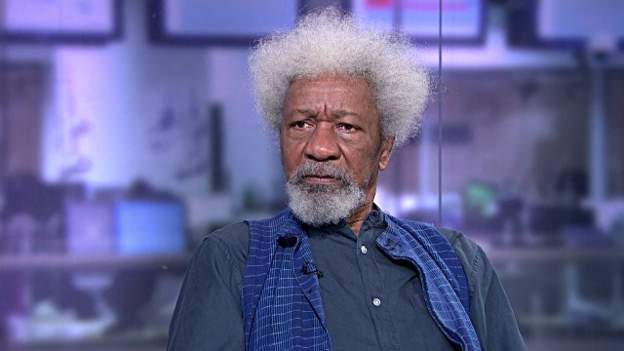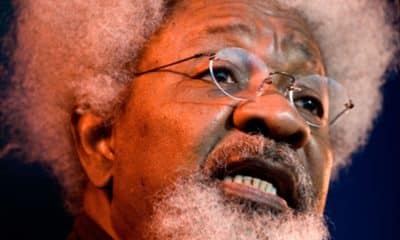Nigeria News
‘Juridical Hypocrisy’ – Soyinka Knocks Kukah Over Easter Message

Nobel Laureate, Prof. Wole Soyinka has slammed the Catholic Bishop of Sokoto Diocese, Matthew Kukah, over his 2022 Easter message.
Naija News recalls that Kukah in his Easter homily released on Sunday submitted that the only thing working in Nigeria is corruption.
Bishop Kukah who hit hard at the administration of President Muhammadu Buhari in his message said the government has gone into hibernation mode and the country is in need of urgent rescue.
He added that the Buhari administration has divided the people on the basis of ethnicity, religion, and region, in a way that has never been witnessed before in the history of Nigeria.
But in a statement on Tuesday, Soyinka called out the Bishop for not talking about the detention of two Nigerian Aethists, Mubarak Bala and Yahaya Sharif for alleged blasphemy in his Easter message.
The playwright said religious leaders must face the reality that millions of people are leaving Christianity and Islam in Nigeria and across the world.
Soyinka, however, advised the vocal cleric to add his voice to the plight of Bala, who was recently sentenced to 24 years in prison and Sharif, who is facing blasphemy charges.
He said: “Easter Greetings to you, Rev Mathew Kukah and to all your followers. All has been said, I think. I am impelled however not to miss an opportunity to add my own Easter drop to the overflowing vessel of pietistic sentiments if only to reassure Christians – and also Moslems in turn – that even we, non-believers, do partake of that same ethical communion to which most humanity aspires. Also, your Easter sermon opens up yet again those sluices of juridical hypocrisy to which we dare not cease to draw attention.
“Such, in the immediate, remains the plight of two young men – Mubarak Bala and the musician Yahaya Sharif – one serving a sentence of twenty-five years, the other actually sentenced to death for alleged blasphemy. The word “blasphemy” comes into its authentic mode, in my view, whenever anyone violates a solemn oath of office. Its penitentially becomes even redoubled when such violators are pampered with the prerogative of mercy. Permit me to call special attention to the following from your sermon:
“Religious leaders must face the reality that here in Nigeria and elsewhere around the world, millions of people are leaving Christianity and Islam. While we are busy building walls of division with the blocks of prejudice, our members are becoming atheists, but we prefer to pretend that we do not see this. We cannot pretend not to hear the footsteps of our faithful marching away into atheism and secularism. No threats can stop this, but dialogue can open our hearts.”










